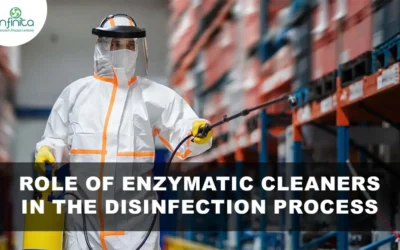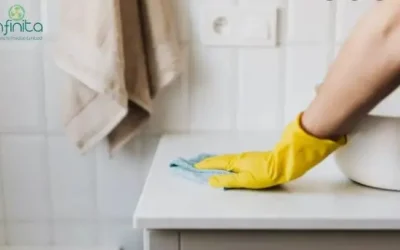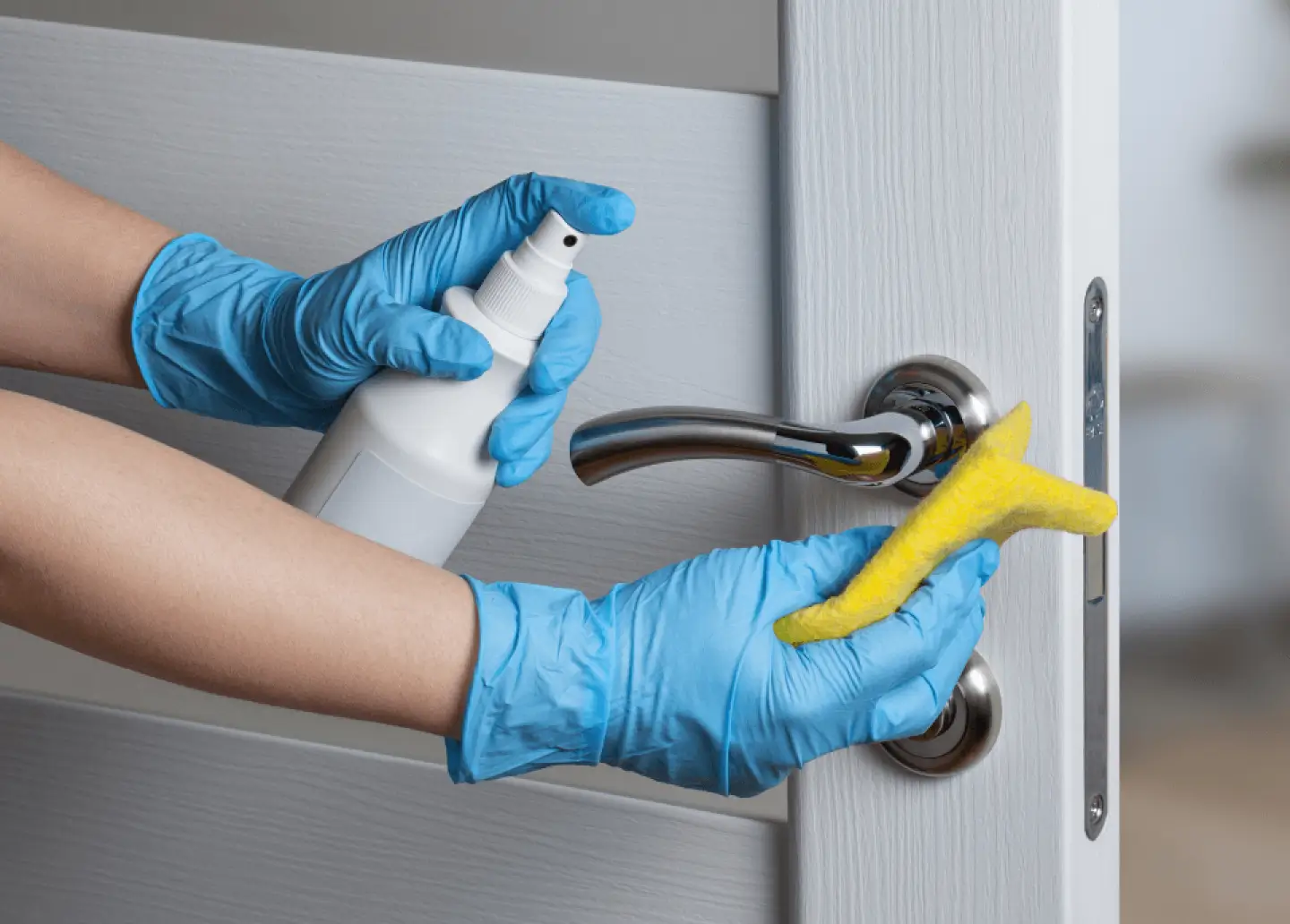Have you ever wondered how disinfectant sprays clean? Enzymatic cleaners play a significant role in doing so! These enzymatic cleaners are used in disinfectants and are majorly used for cleaning wounds, floors, bathrooms, etc. Although disinfectants are not new to the...
ENZYMES
Disinfectants – Cleaning Enzymes Manufacturer
What are Disinfectants – Cleaning Enzymes?
At Infinita Biotech, we develop cleaning and disinfecting products to better maintain hygiene in the facility and protect our environment from infectious disease.
Cleaning is done with water, a cleaning product, and scrubbing. Standard cleaning does not kill bacteria, viruses, or fungi, which are generally referred to as “germs.” Cleaning products are meant to remove germs, dirt, and other organic material by washing them down the drain. Our disinfecting products are chemicals and bio-chemicals which are organic, safe to handle and help kill germs.
Incorporating enzymes into cleaning products has revolutionized the effectiveness of hygiene maintenance. Cleaning enzymes are key components that enhance the removal of germs, dirt, and organic materials during the cleaning process. These specialized enzymes facilitate the breakdown and removal of stubborn stains and biofilms, resulting in a deeper and more thorough cleaning. Enzymes in cleaning products offer a safe and efficient solution for combating germs while being environmentally friendly. At Infinita Biotech, our range of cleaning products utilizes the power of enzymes to ensure optimal cleanliness and protection against infectious diseases.
Bacteria often attach to surfaces, especially moist ones, and form dense mats called biofilm. Bacteria in biofilms are much harder to kill. Thus, keeping surfaces clean and dry by application of disinfectants prevents biofilms from developing. The surfaces are home to new germs as soon as they are touched by hands or sneezed or coughed on. Bacteria can grow and divide very fast. Fungi, including yeasts and moulds, are everywhere. They can survive on surfaces for long periods. Thus, the function of disinfectants is most valuable in the present scenario.
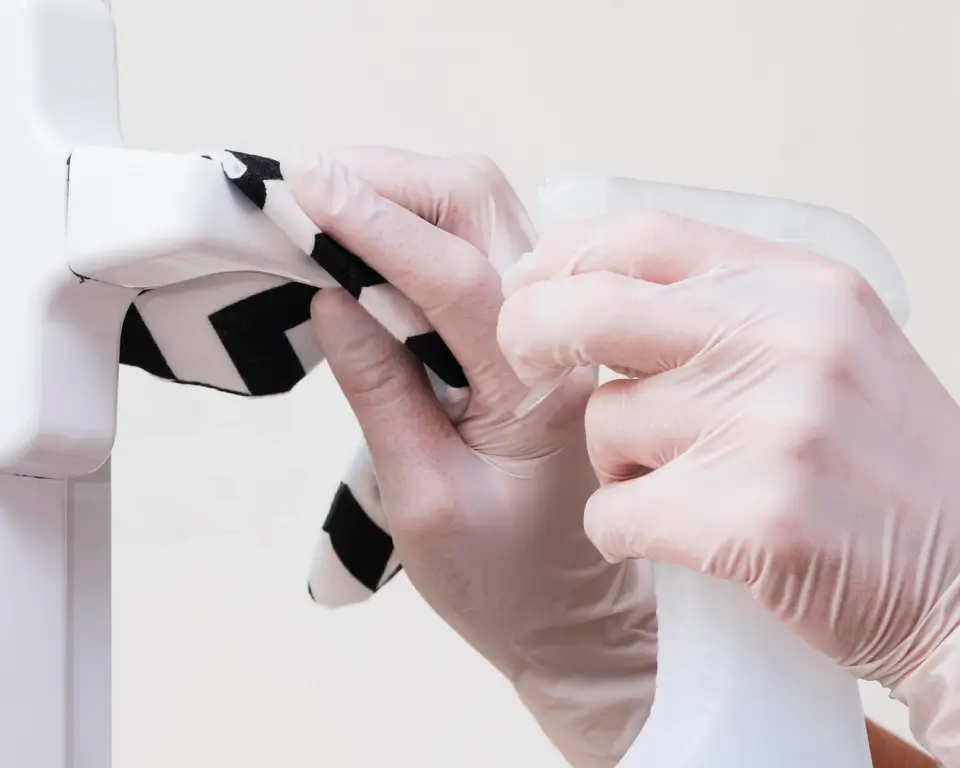
Our Solutions
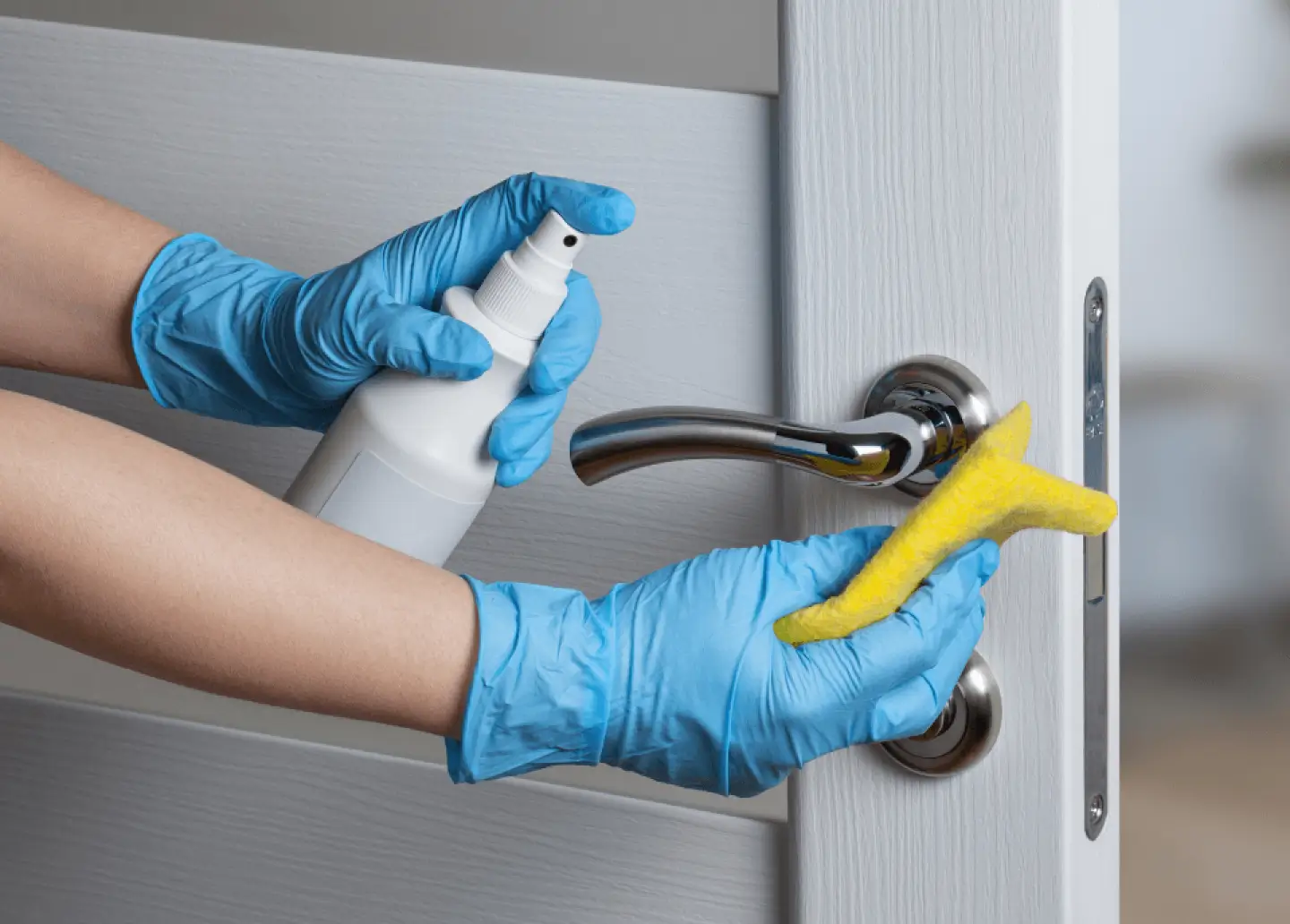
Enzymes Based Disinfectant
Our non-toxic and non-hazardous cleaning solution is antimicrobial and antiviral in nature.Eco-Friendly
Alcohol Free
Multi – Surface Cleaner
Related Blogs & Insights
Enzyme Disinfectants And Their Uses
Enzymes are bio-catalysts that speed up chemical reactions and break down complex molecules into simpler forms without undergoing any reaction themselves. This property of enzymes makes it useful for cleaning organic wastes in a variety of fields including...
Benefits Of Eco-Friendly Disinfectants
What Are Eco-Friendly Disinfectants? Benefits Of Eco-Friendly Disinfectants As our lives become busier, more stressful, and increasingly demanding, it is only natural to reach towards the latest items on the supermarket shelves that guarantee to make errands simpler....
NEED ANY HELP?
Frequently Asked Questions , Disinfectants
Are there enzymes in cleaning products?
Yes, enzymatic cleaners are used in many cleaning products. Enzymes are proteins that can speed up chemical reactions, and they are often used as cleaning agents because they can break down dirt, stains, and other residues.
What enzymes are used for cleaning?
Many different enzymatic cleaners can be used for cleaning. Some common enzymes used for cleaning include proteases, lipases, and amylases. These enzymes can help to break down different types of dirt, grime, and stains.
What is an enzymatic cleaner?
Enzymatic cleaners or cleaning enzymes are cleaning products that use enzymes to break down dirt, grime and other organic matter. Enzymatic cleaners are often used in food-processing facilities and hospitals, as they are effective at removing potentially harmful contaminants.
How long does it take enzymatic cleaner to work?
There is no one-size-fits-all answer to this question, as the amount of time it takes for an enzymatic cleaner to work can vary depending on the product and the specific application. However, in general, it is best to give an enzymatic cleaner at least 15 minutes to work before attempting to remove the stain.
What is the role of enzymatic solutions in the disinfection process?
Enzymatic cleaners are effective at breaking down organic matter, which helps to improve the efficacy of the disinfection process. In addition, enzymes can help to remove soils and debris that may be present on surfaces, which can further improve the efficacy of disinfection.
Driving Innovation
For A Greener Tomorrow
Committed to advancing eco-friendly biotechnology for a healthier planet.
For A Greener Tomorrow
Committed to advancing eco-friendly biotechnology for a healthier planet.
